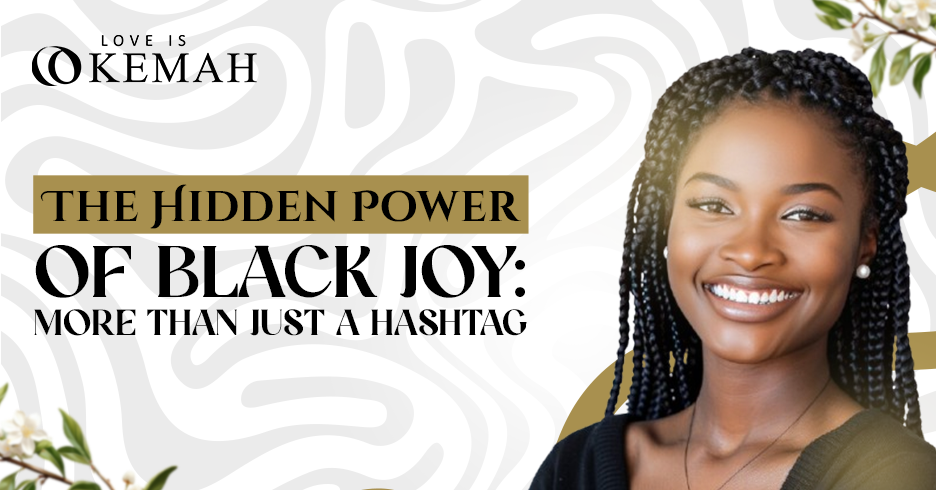
The Hidden Power of Black Joy: More Than Just a Hashtag
Black joy is resistance. Black joy is survival. Black joy is power. Yet, in a world that has long sought to define Black existence through struggle, oppression, and pain, the sheer act of experiencing and expressing joy becomes revolutionary. It is more than a moment. More than a hashtag. More than a fleeting trend on social media. It is a declaration of life, a radical form of self-preservation, and a legacy passed down through generations.
For centuries, the mainstream narrative of Black life has centered on suffering. From the harrowing history of slavery to the ongoing fight for racial justice, Black stories have often been told through the lens of trauma. And while these stories must never be forgotten, they do not define the totality of Black existence. To be Black is also to laugh deeply, to dance freely, to create boldly, to love fiercely, and to dream without boundaries. Black joy is the heartbeat of a people who refuse to be broken.
The Radical Act of Joy
It is no secret that the world often seeks to suppress Black joy. Whether through systemic oppression, cultural erasure, or the policing of Black bodies, joy has been treated as something Black people must earn rather than something inherent to their humanity. And yet, against all odds, it persists. Black joy is not merely a reaction to struggle; it is an assertion of identity. It is the vibrant laughter of a Black mother and her child in the park. It is the electric energy of a cookout on a summer afternoon. It is the uncontainable celebration of Black excellence in art, music, and sports. It is the sacred bond of community that turns pain into purpose.
Consider the way Black joy manifests in music. From the spirituals sung by enslaved ancestors to the infectious beats of Afrobeats, hip-hop, and R&B, music has long been a vessel of joy and resistance. Artists like Beyoncé, Kendrick Lamar, and Burna Boy do not just create music; they craft anthems of resilience, celebration, and unapologetic Blackness. Music is a reminder that even in the darkest times, the spirit of Black joy remains unshaken.
More Than a Hashtag
The rise of social media has brought Black joy into the global spotlight, with hashtags like #BlackBoyJoy and #BlackGirlMagic gaining widespread recognition. But Black joy cannot be reduced to an internet trend. It is not just a momentary escape from reality or a performative display for likes and retweets. It is a movement, a philosophy, a way of being.
There is power in seeing Black people thriving, loving, and achieving. Representation matters. When a young Black girl sees images of Serena Williams dominating tennis courts or Marsai Martin producing films before she’s old enough to drive, she internalizes the message that Blackness is not a limitation but a superpower. When a Black boy watches LeBron James build schools or Chadwick Boseman portray a king in Black Panther, he understands that his future is limitless.
But Black joy is not just for the famous or the celebrated. It exists in everyday moments—the pride of a father watching his son graduate, the quiet peace of a grandmother tending her garden, the bond of lifelong friends reminiscing over shared memories. These moments, though often overlooked by mainstream narratives, are the essence of what it means to live fully and authentically.
The Intersection of Joy and Activism
One of the most profound aspects of Black joy is its role in activism. Joy is not an escape from the fight for justice; it is fuel for it. Civil rights movements have always included elements of joy—from the songs of the Freedom Riders to the jubilant dancing at protests today. Joy sustains resistance because it reminds people of what they are fighting for: the right to live without fear, the right to dream without limits, the right to simply be.
Toni Morrison once said, “The function of freedom is to free someone else.” Black joy is freedom in motion, and when one person claims it, they create space for others to do the same. It is an act of defiance against those who wish to see Black communities in a perpetual state of struggle. It is a refusal to be defined by trauma alone.
Protecting and Cultivating Black Joy
In a society that often seeks to diminish Black joy, protecting it becomes essential. This means creating spaces where Black people can celebrate themselves without judgment. It means amplifying Black voices that highlight love, achievement, and creativity. It means supporting Black-owned businesses, consuming Black art, and recognizing that joy itself is a form of resistance.
It also means acknowledging that joy does not exist in isolation. It is deeply connected to mental health, economic stability, and community support. Investing in Black joy means investing in policies that promote equity in education, healthcare, and employment. It means dismantling the systems that seek to oppress while uplifting the spaces that allow Black people to thrive.
The Unbreakable Legacy
Black joy is ancestral. It is the echo of laughter that survived centuries of oppression, the rhythm in every beat of the drum, the brilliance in every artistic masterpiece. It is the legacy of those who came before and the gift to those yet to come. Black joy is not naive or blind to the struggles of the world; it is an affirmation that Black life is valuable, beautiful, and deserving of celebration.
So, the next time you see Black people dancing in the streets, laughing in the sun, or embracing each other in love, understand that it is not just a moment. It is history. It is power. It is a revolution wrapped in the beauty of existence. Black joy is more than just a hashtag—it is a force that will never be silenced.
